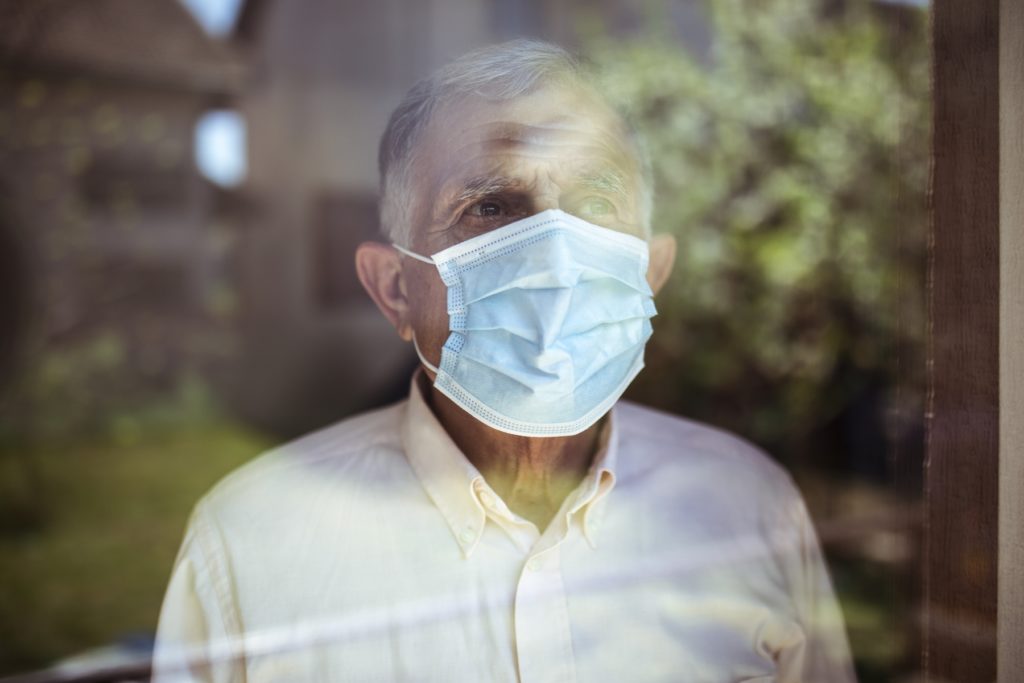
COVID-19 Update: New Quarantine Recommendations

Although the U.S. Centers for Disease & Prevention (CDC) continues to recommend a 14-day quarantine for anyone with an exposure to someone COVID-19 as the best way to prevent spread of the illness, the government agency recently released new recommendations on quarantine periods that provide options to reduce the number of days.
The new guidance calls for people who have been in close contact with someone who has COVID-19 and lack symptoms should quarantine for 10 days without testing, or for seven days with a negative COVID-19 test. The seven-day option requires a test be done not more than 48 hours prior to the 7th day.
According to the CDC, “Reducing the length of quarantine may make it easier for people to quarantine by reducing the time they cannot work. The CDC recognizes that any quarantine shorter than 14 days balances reduced burden against a small possibility of spreading the virus.”
During the quarantine period, the CDC recommends the following steps:
- Stay home for 14 days after your last contact with a person who has COVID-19.
- Watch for fever (100.4◦F), cough, shortness of breath, or other symptoms of COVID-19.
- If possible, stay away from others, especially people who are at higher risk for getting very sick from COVID-19.
For those who meet the definition for a shorter quarantine period, the CDC recommends the following steps after stopping quarantine:
- Watch for symptoms until 14 days after exposure (even though you are quarantining for less days).
- If you have symptoms, immediately self-isolate and contact your local public health authority or healthcare provider.
- Wear a mask, stay at least 6 feet from others, wash your hands, avoid crowds, and take other steps to prevent the spread of COVID-19.
- Avoid contact with people who are most vulnerable – older people, and those with underlying medical problems like cardiovascular disease, diabetes, chronic respiratory disease, and cancer are more likely to develop serious illness.
It’s important to remember that the CDC update pertains only to quarantine; the isolation guidelines for those who have tested positive and have symptoms or remain without symptoms have not changed. That means if you are sick, isolate for 10 days from the start of your symptoms and isolate 10 days from the day of your positive test if you have no symptoms.
Complete When to Quarantine information is available on the CDC’s website.
More Recent Healthcare News

Every year we celebrate Doctor’s Day and Nurses Week, but there’s one more recognition event that’s just as important. Administrative Professionals Day is April 24th this year and I want to be sure to bring special attention to three incredibly special members of the Boca Grande Health Clinic family. Jonna Foos, Director of Operations Jonna […]

April, the birth month of James Parkinson, is Parkinson’s Disease Awareness Month. Parkinson’s is a degenerative syndrome that results in the gradual loss of brain circuitry involved in movement, thinking and behavior. According to the National Institutes of Health (NIH), the first clear medical description of Parkinson’s Disease as a neurological condition was written in […]

March 30th marks a special day on our calendar – Doctor’s Day! It’s a time to honor those who dedicate their lives to caring for us. At the Boca Grande Health Clinic, it’s the extraordinary team of board-certified physicians – Dr. Raymond A. James, our Medical Director; Dr. Bret Kueber, the Assistant Medical Director; and […]

Ask a Doc: Kicking Colon Cancer in the Butt
March 22, 2024According to the American Cancer Society, the lifetime risk of developing colorectal cancer is about 1 in 23 for men and 1 in 25 for women. The death rate from colorectal cancer has been dropping in older adults for several decades. Unfortunately, colorectal cancers now rank as the leading cause of cancer death in men […]
